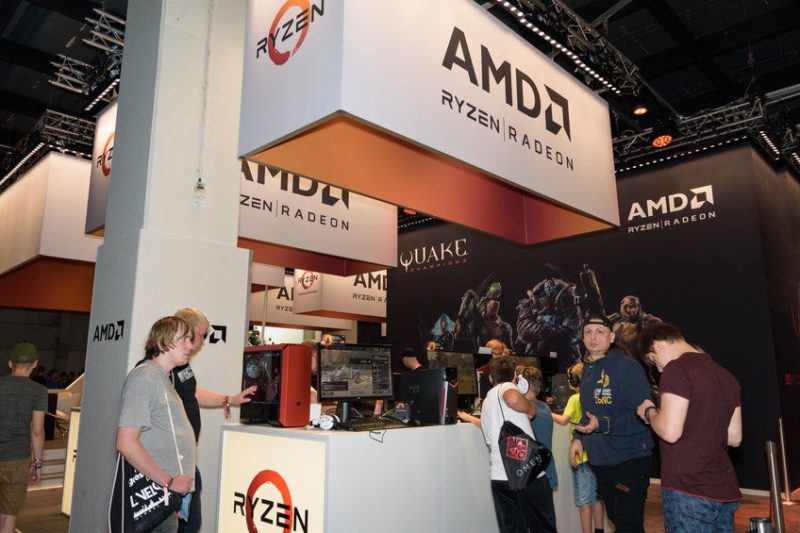Advanced Micro Devices (AMD) stock price has continued to underperform other big names in the semiconductor industry like NVIDIA and Taiwan Semiconductor as concerns about its business and valuation remain. It was trading at $156 on Friday, down by over 30% from its highest point this year, giving it a market cap of $252 billion.
AMD is facing substantial headwinds
AMD, one of the most beloved players in the semiconductor industry, has come under intense pressure in the past few months.
Its recent financial results showed that the company was facing major headwinds as most parts of its business continued falling.
The results showed that AMD’s revenue rose by 9% in the second quarter to $5.8 billion. In contrast, NVIDIA, which is often seen as its biggest competitor, grew by 115% during the quarter as demand for its AI chips surged.
AMD’s business is also seeing robust growth in its data center business as its revenue rose by 115% to $2.8 billion. This growth was mostly driven by the ramp of AMD Instict GPU shipments and the AMD EPYC CPU.
AMD’s client segment also continued doing well as its revenue rose by 49% YoY to $1.5 billion. However, the other segments continued to weaken, with its gaming and embedded revenue falling by 59% and 41%.
Analysts believe that AMD will evolve to become the second-biggest GPU competitor to NVIDIA, which commands an 88% market share. AMD has about 12% share, a figure that will continue growing because its GPUs are significantly cheaper than NVIDIA’s
Another advantage is that AMD’s Radeon Open Compute (ROCm) is gaining popularity among developers. ROCm is the alternative to Compute Unified Device Architecture (CUDA), which helps developers to convert their general-purpose GPUs into data center ones. The challenge, however, is that the GPU business is still a small part of its business.
Additionally, the PC market is expected to have slower growth than expected. Analysts expect that its shipments will grow by 3.7% YoY this year to over 261 million. Analysts were expecting the sector to grow by over 5%.
Read more: Nvidia (NVDA) stock could reach $10 trillion market cap by 2030, analysts predict
AMD’s valuation concerns
The other big concern for AMD is that it maintains high inventory levels compared to NVIDIA. The most recent results shows that AMD had inventories worth about $5 billion, or about 29% of its total current assets. In contrast, NVIDIA had $6.67 billion in inventories or just 11%. There are signs that these inventories are moving slowly, which can be a big profitability issue.
At the same time, investors are concerned about its high valuation metrics, especially for a company that is no longer growing as it did in the past.
Data shows that AMD has a forward P/E ratio of 120, which is higher than the sector median of 30, and its five-year average of 94. AMD also has a trailing P/E ratio of 187, also higher than the sector median of 29.8.
These numbers mean that the company needs to demonstrate strong revenue growth in the next few quarters as the AI investment cycle continues.
Analysts expect the upcoming results will show that its revenue grew by 15.7% in the third quarter to $6.17 billion. It will be followed by a 22.3% revenue growth to $7.54 billion. For the year, its revenue will come at $25 billion, followed by $32 billion next year.
These numbers mean that AMD is significantly overvalued since it has significantly lower margins than NVIDIA’s. AMD has gross and profit margins of 51% and 5.8%, while NVIDIA has 76% and 55%, respectively.
Therefore, even if AMD’s revenues jump to $50 billion, and assuming that its net profit will be $10 billion, it will P/E ratio of over 25. Keep in mind that AMD’s annual revenue is expected to get to $50 billion in the next five years.
Therefore, AMD’s earnings scheduled for Tuesday will be important. It will need to demonstrate that its business is doing well, especially in the AI industry. Analysts expect that its stock should be about $188, higher than the current $156.
AMD stock price analysis
AMD chart by TradingView
The daily chart shows that the AMD share price is sending mixed signals ahead of its earnings. On the positive side, the stock has formed an inverse head and shoulders chart pattern, a popular bullish sign.
However, it is oscillating at the 50-day and 200-day weighted moving averages, which are about to form a bearish crossover pattern. In most periods, this is one of the most bearish signs in the market.
The stock has moved to the 38.2% Fibonacci Retracement point. Therefore, if it publishes strong results, it means that the stock will rise to $175, its highest point on October 10. However, a drop below the key support at $150 will point to more downside.
🚀 MAJOR MOVE COMING FOR $AMD! 🚀 Technical Breakdown: We just saw a perfect retest of the downtrend line that $AMD broke out from recently! This retest is often a textbook bullish signal, indicating the potential for an upside continuation. Volume is strong, and the bulls are…
The post AMD stock price forecast: buy or sell ahead of earnings? appeared first on Invezz


